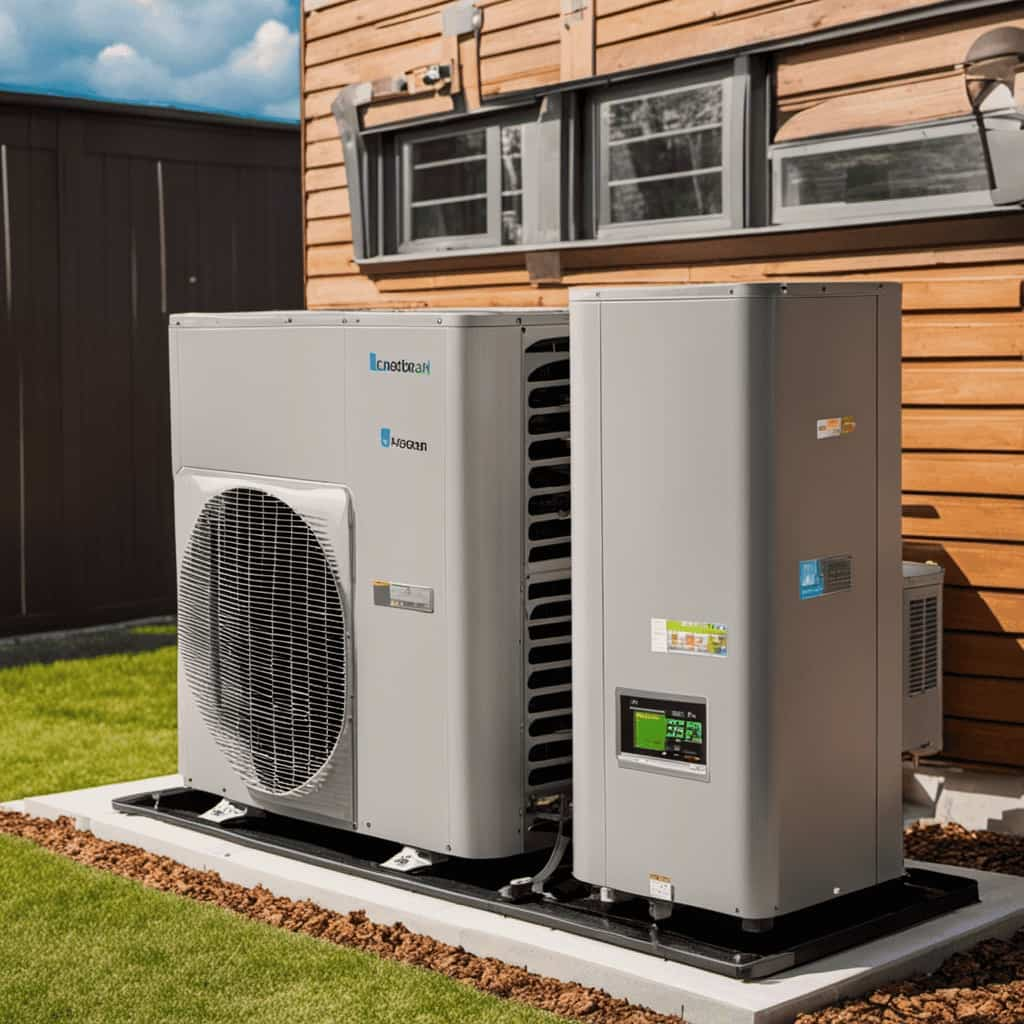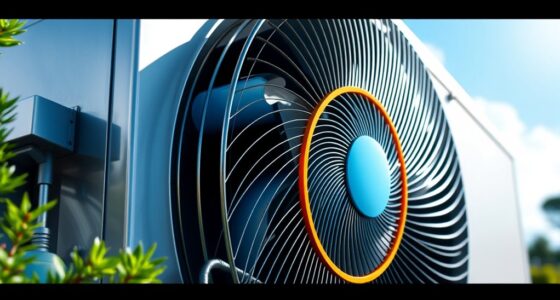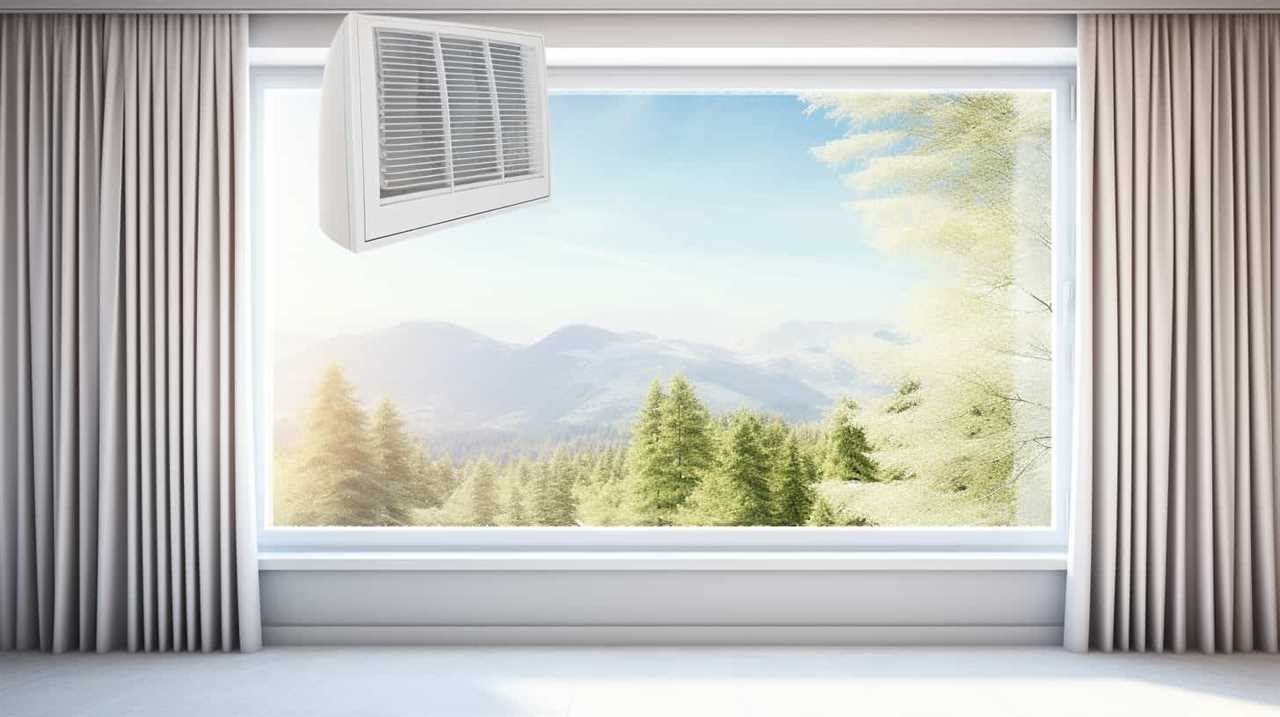We understand that heat pumps may not be the most thrilling topic, but they can have a significant impact on sustainable home design. Trust us on this one.
In this article, we’ll share seven heat pump strategies that will help you create a more energy-efficient and comfortable home.
From proper installation to smart thermostat integration, we’ve got you covered.
So get ready to dive into the world of heat pumps and discover how they can transform your living space.

Key Takeaways
- Proper sizing and selection of a heat pump is crucial for optimal performance and energy efficiency.
- Proper installation and placement of the heat pump ensures efficient airflow and insulation.
- Integration of a smart thermostat can improve energy efficiency by allowing temperature programming and remote access.
- Geothermal heat pump systems are a highly efficient and eco-friendly option for sustainable home design.
Energy-Efficient Heat Pump Selection
When selecting an energy-efficient heat pump, we should consider factors such as the size of our home and our climate conditions. Ensuring the right size of heat pump for our home is crucial for optimal performance and energy efficiency. Oversized heat pumps can result in frequent cycling, while undersized ones may struggle to maintain desired temperatures.
Additionally, understanding our climate conditions helps determine the heat pump’s efficiency rating. For colder regions, a heat pump with a higher Heating Seasonal Performance Factor (HSPF) is recommended.
Regular energy efficient heat pump maintenance is essential for long-term performance. This includes cleaning or replacing air filters, checking refrigerant levels, and inspecting the outdoor unit for debris. If any issues arise, heat pump system troubleshooting should be done promptly to avoid further damage and maintain energy efficiency.
Optimal Heat Pump Sizing for Your Home
When it comes to optimal heat pump sizing for our homes, efficiency is key. By selecting the right size heat pump for our specific needs, we can ensure that it operates at its highest efficiency level, resulting in cost savings and reduced energy consumption.

It’s important to consider factors such as the size of our home, insulation levels, and climate conditions to determine the most cost-effective heat pump size that will meet our heating and cooling requirements.
Efficient Heat Pump Sizing
We should ensure that our heat pump is sized efficiently to maximize its performance and energy efficiency in our home. Proper heat pump sizing is crucial for optimizing its operation and achieving energy savings.
An undersized heat pump will struggle to meet the heating or cooling demands of our home, leading to decreased efficiency and increased energy consumption. On the other hand, an oversized heat pump will cycle on and off frequently, resulting in inefficient operation and reduced lifespan.
To determine the optimal size, we need to consider factors such as the climate, insulation levels, and the size and layout of our home. Consulting with a professional HVAC contractor can help us select the right-sized heat pump for our specific needs, ensuring optimal performance and energy efficiency.
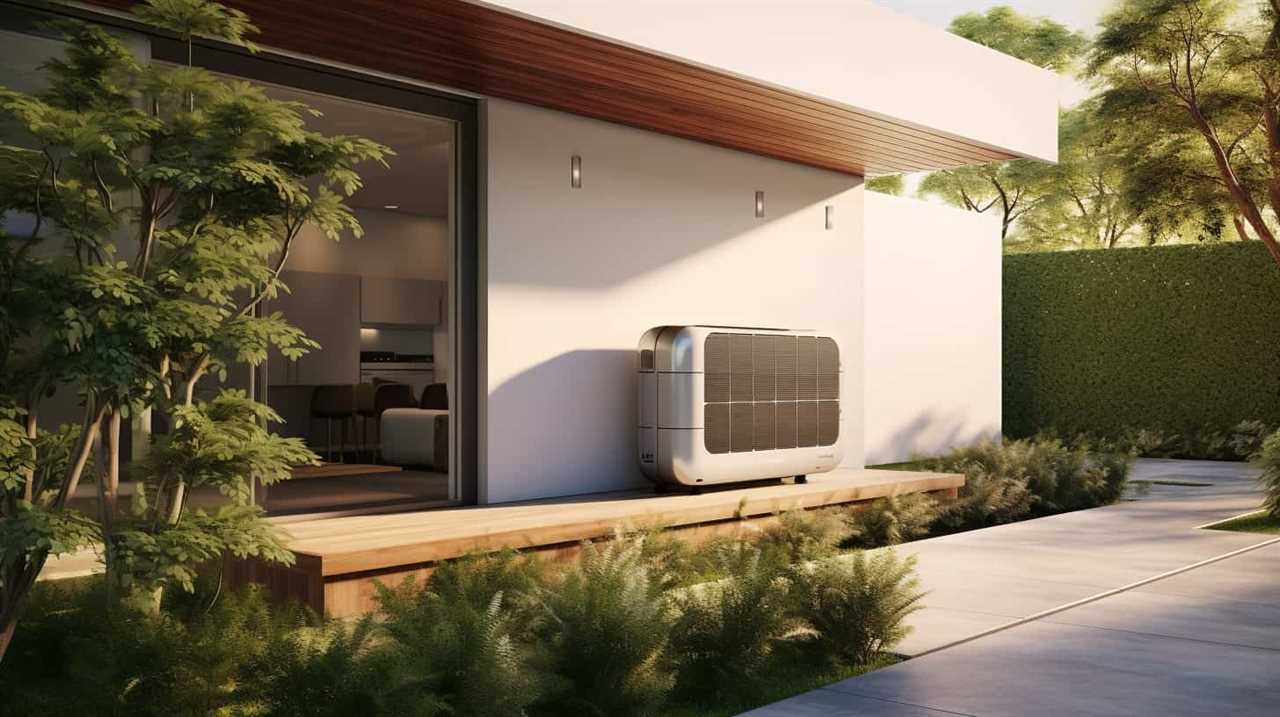
Cost-Effective Heat Pump
To achieve cost-effective heat pump operation, we must ensure optimal sizing for our home. Choosing the right size heat pump is crucial for energy efficiency and long-term savings.
Oversized heat pumps waste energy and increase electricity bills, while undersized ones struggle to meet the heating and cooling demands, leading to decreased comfort and higher operating costs.
To determine the optimal heat pump size, factors like climate, insulation, windows, and square footage of the home need to be considered.
Consulting with a professional HVAC contractor will help determine the proper size and select from energy-saving options like variable speed compressors and zoning systems.
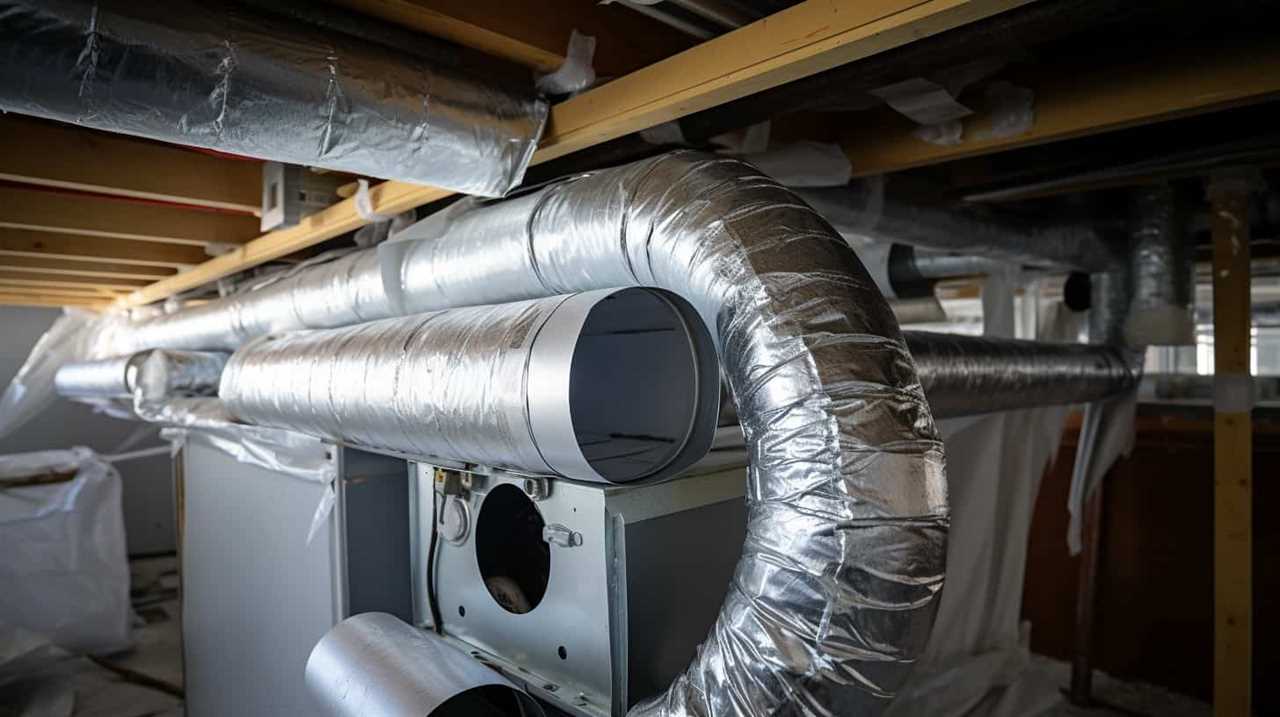
Investing in a properly sized heat pump won’t only save money in the long run but also ensure a comfortable and sustainable home environment.
Proper Installation and Placement of Heat Pumps
Our team ensures that heat pumps are properly installed and placed to maximize efficiency and effectiveness. Proper installation is crucial for the optimal performance of heat pumps.
One common installation mistake is improper sizing. It’s essential to accurately calculate the heating and cooling loads of the space to determine the right size of the heat pump. Oversized or undersized units can lead to inefficiency and increased energy consumption.
Another common mistake is poor placement. Heat pumps should be located in an area with adequate airflow and insulation. They should be positioned away from obstructions and direct sunlight.
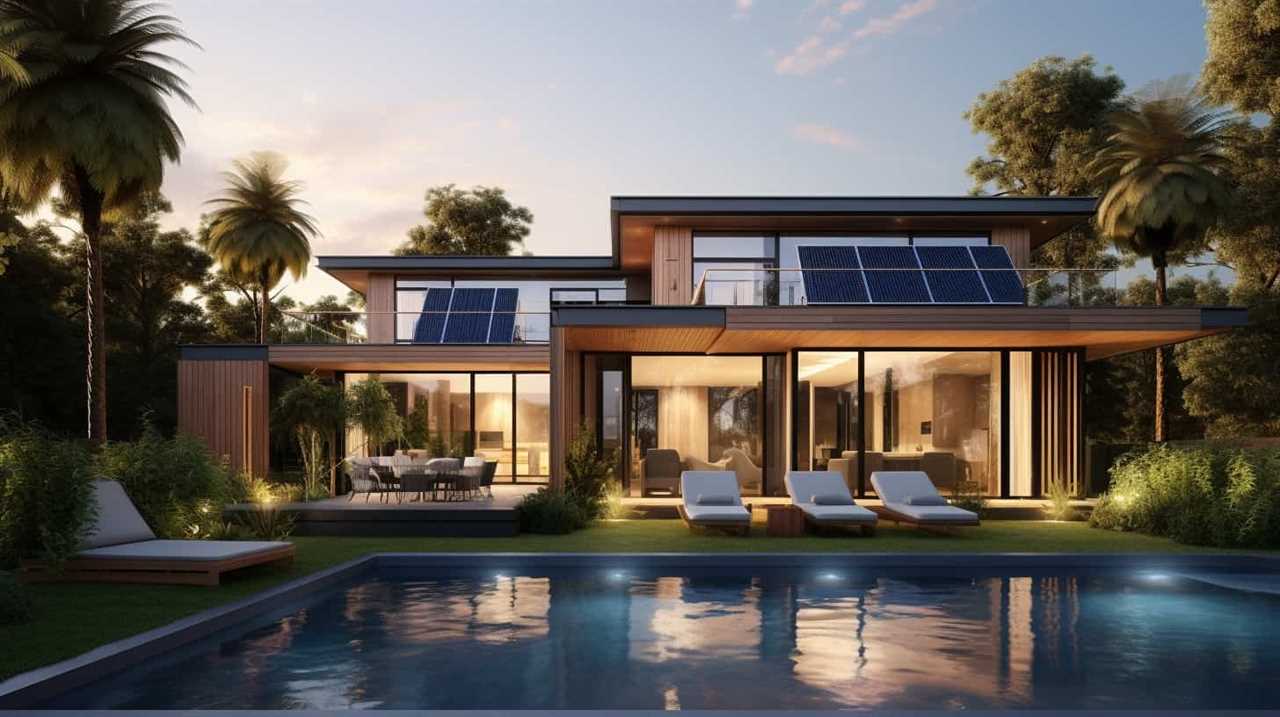
Additionally, proper ductwork installation is necessary to prevent air leaks and ensure efficient distribution of conditioned air.
Our team pays meticulous attention to detail and conducts thorough heat pump troubleshooting to rectify any installation issues and enhance the performance of the system.
Smart Thermostat Integration With Heat Pump Systems
One important aspect of integrating smart thermostats with heat pump systems is understanding the benefits of this technology. Smart thermostats offer several advantages when used in conjunction with heat pump systems.
Firstly, they provide improved energy efficiency by allowing homeowners to program temperature settings based on their daily routines. This ensures that the heat pump operates only when necessary, reducing energy consumption and lowering utility bills.

Additionally, smart thermostats offer remote access and control via smartphone apps, enabling homeowners to adjust temperature settings even when they’re away from home.
However, integrating smart thermostats with heat pump systems can present some challenges. The compatibility between the two technologies must be considered, and proper installation and setup are crucial for optimal performance.
Despite these integration challenges, the benefits of using smart thermostats with heat pump systems make them a valuable addition to sustainable home design.
Now, let’s explore another heat pump system option: geothermal heat pump systems for sustainable design.

Geothermal Heat Pump Systems for Sustainable Design
When considering sustainable home design, geothermal heat pump systems offer a highly efficient and eco-friendly option. Geothermal heat pump technology harnesses the constant temperature of the earth to provide renewable energy heating for homes.
These systems work by utilizing a series of underground pipes, called ground loops, to transfer heat between the earth and the home. In the winter, the heat pump extracts heat from the ground and transfers it into the home, while in the summer, it extracts heat from the home and transfers it back into the ground.
This process is incredibly efficient, as the earth’s temperature remains relatively constant throughout the year. By utilizing geothermal heat pump systems, homeowners can reduce their reliance on fossil fuels and significantly decrease their carbon footprint.
Enhancing Heat Pump Efficiency With Insulation and Air Sealing
To enhance heat pump efficiency, we can improve insulation and air sealing in our homes. Here are some key benefits of insulation and air sealing techniques:
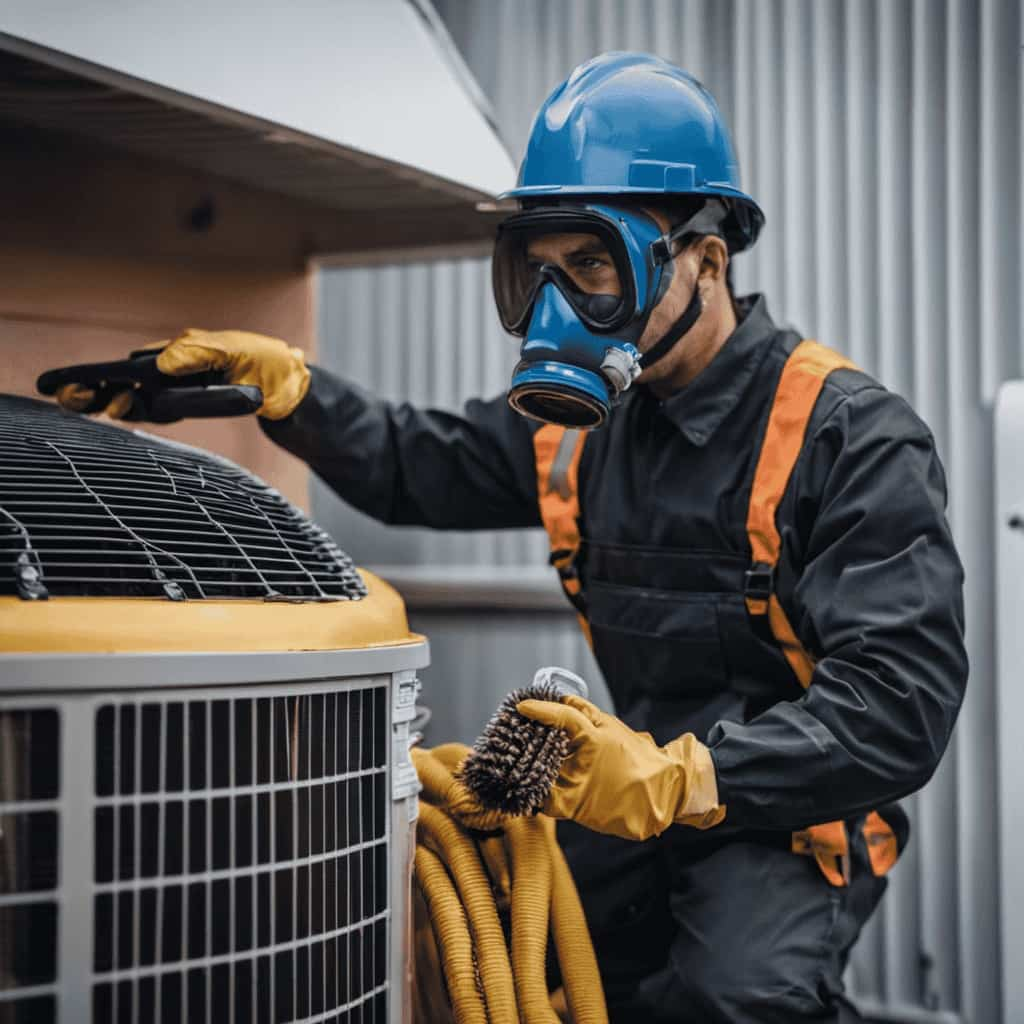
-
Energy savings: Proper insulation reduces heat loss and air leakage, allowing the heat pump to operate more efficiently and reduce energy consumption.
-
Enhanced comfort: Insulation helps maintain a consistent indoor temperature by minimizing drafts and cold spots, creating a more comfortable living environment.
-
Noise reduction: Insulation can also help reduce noise transmission, making your home quieter and more peaceful.
-
Environmental benefits: By reducing energy consumption, insulation and air sealing contribute to lower greenhouse gas emissions, helping to protect the environment.

To achieve these benefits, consider adding insulation in walls, floors, and attics, and seal any gaps or cracks that allow air leakage. Consulting with a professional can ensure proper insulation installation and air sealing techniques for maximum efficiency.
Maintenance and Regular Servicing of Heat Pump Systems
Maintaining and regularly servicing heat pump systems is crucial for their optimal performance and longevity. Neglecting maintenance can lead to decreased efficiency, higher energy consumption, and potential system failures.
To ensure the smooth operation of heat pump systems, it’s recommended to schedule professional maintenance at least once a year. This maintenance should include tasks such as filter cleaning, refrigerant level checks, and inspection of electrical connections.
Importance of Maintenance
We need to regularly check and service our heat pump systems to ensure their optimal performance and longevity. Regular maintenance is crucial for several reasons:

-
Improved Efficiency: Regular maintenance helps keep the heat pump system running at its peak efficiency, reducing energy consumption and lowering utility bills.
-
Enhanced Comfort: Proper maintenance ensures that the heat pump system delivers the desired heating and cooling levels, keeping your home comfortable throughout the year.
-
Extended Lifespan: Regular servicing helps identify and address potential issues before they become major problems, extending the lifespan of the heat pump system and saving you money on premature replacements.
-
Warranty Compliance: Many manufacturers require regular maintenance to maintain the warranty validity. By scheduling professional servicing, you can fulfill this requirement and protect your investment.
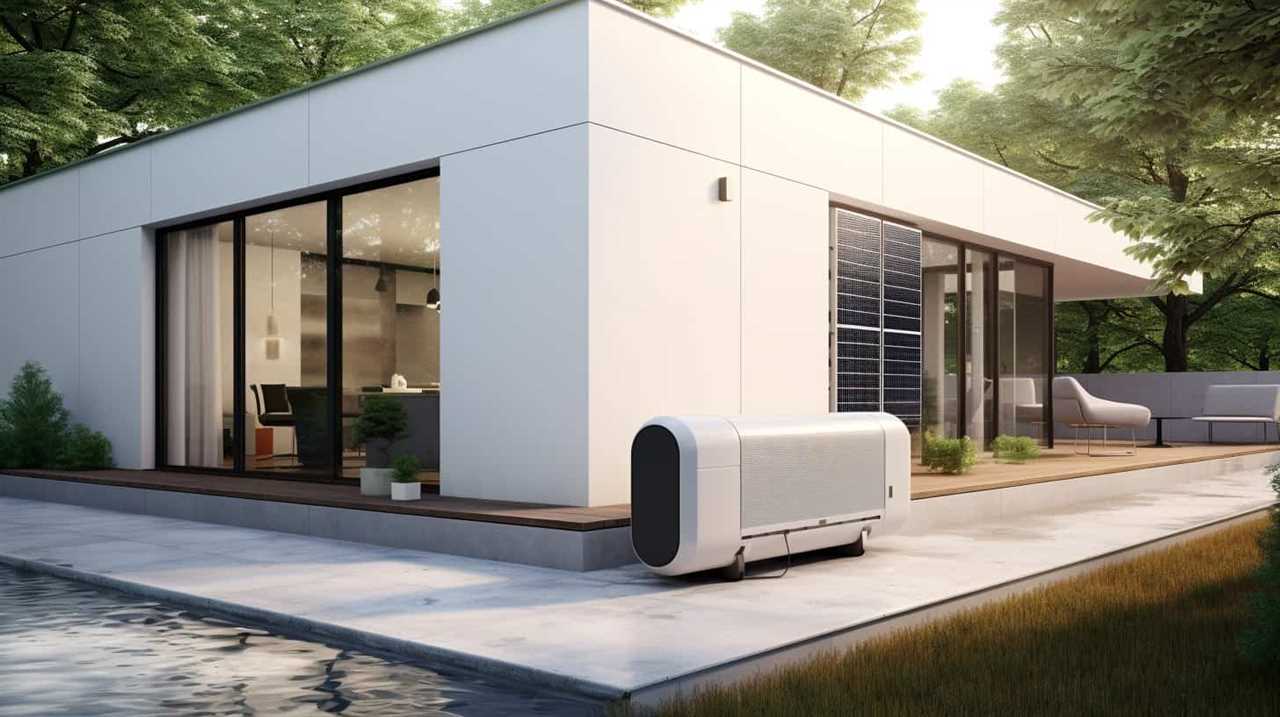
Servicing Frequency Recommendations
Regular servicing is recommended at least once a year to ensure optimal performance and longevity of heat pump systems. Servicing frequency is crucial in maintaining the efficiency and functionality of these systems.
During a servicing appointment, a qualified technician will thoroughly inspect and clean the heat pump, ensuring that all components are in good working order. They’ll also check for any potential issues or signs of wear and tear that may require attention. Regular maintenance is important because it allows for early detection of problems, preventing costly breakdowns and extending the lifespan of the heat pump.
Additionally, servicing helps to maintain the system’s energy efficiency, maximizing its performance and reducing energy consumption. By prioritizing regular servicing, homeowners can enjoy a well-functioning heat pump system that provides reliable heating and cooling year-round.
Frequently Asked Questions
How Do Heat Pump Systems Contribute to Overall Energy Efficiency in a Home?
Heat pump systems contribute to overall energy efficiency in a home by utilizing advanced technology to efficiently transfer heat from one area to another, resulting in significant energy savings and reduced carbon emissions.
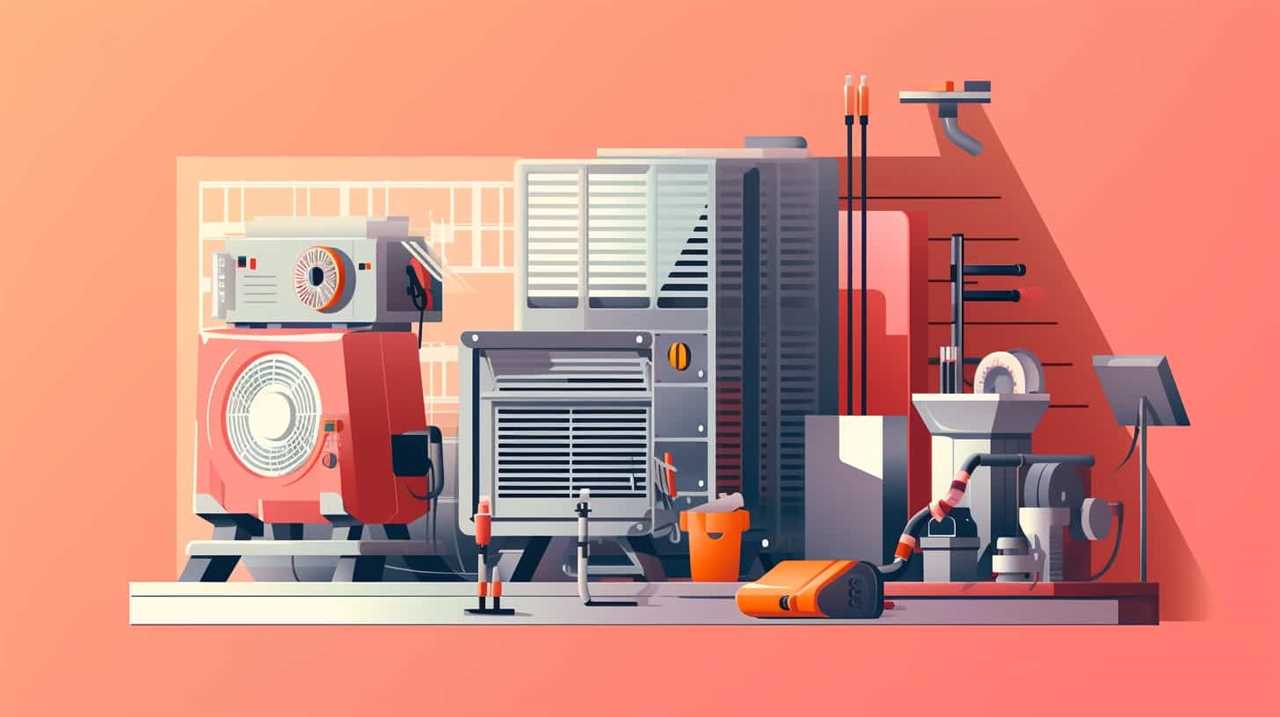
Can Heat Pumps Be Used in All Climates, Including Colder Regions?
Yes, heat pumps can be used in all climates, including colder regions. They are highly efficient, with some models providing up to 300% heat pump efficiency. Winter performance is improved through advanced defrosting technology.
Are There Any Additional Benefits to Integrating a Smart Thermostat With a Heat Pump System?
There are many benefits to integrating a smart thermostat with a heat pump system. It allows for precise temperature control, energy savings, and the convenience of remote access. It’s a smart choice for sustainable home design.
How Do Geothermal Heat Pump Systems Differ From Traditional Heat Pump Systems?
Geothermal heat pump systems, compared to traditional heat pump systems, offer higher efficiency and require a different installation process. The efficiency of geothermal heat pumps stems from their ability to utilize the stable temperature of the earth, resulting in reduced energy consumption.
What Are the Recommended Maintenance and Servicing Procedures for Heat Pump Systems to Ensure Optimal Performance and Longevity?
To ensure optimal performance and longevity, we recommend following proper maintenance procedures and servicing guidelines for heat pump systems. Regularly cleaning and inspecting the unit, checking refrigerant levels, and scheduling professional maintenance are essential for its efficient operation.

Conclusion
In conclusion, implementing heat pump strategies in sustainable home design is crucial for energy efficiency.
One interesting statistic to note is that properly sized and installed heat pumps can reduce energy consumption by up to 50% compared to traditional heating and cooling systems.
By integrating smart thermostats, geothermal systems, insulation, and regular maintenance, homeowners can achieve maximum heat pump efficiency and contribute to a more sustainable future.



